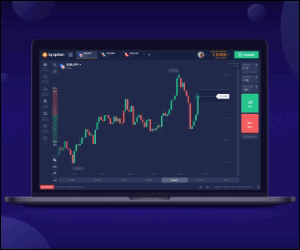Forex Trading in India- Forex Broker’s Review
Forex trading in India is becoming increasingly popular as more and more investors are looking to take advantage of the potential profits that can be made from trading in the foreign exchange market. India is one of the world’s largest economies and has a large population of investors who are looking to diversify their portfolios and take advantage of the potential profits that can be made from trading in the foreign exchange market. With the right knowledge and tools, investors can take advantage of the opportunities that the forex market offers and make a profit. In this article, we will discuss the basics of forex trading in India, the regulations that govern it, and the potential risks and rewards associated with it.
Best Forex Brokers in India
Before making a final decision on which Forex broker to trade with, it is important to consider several factors. These include the minimum deposit, commission charges on trades, brokerage or spread, funding methods and fees, withdrawal methods, trading platforms, and speed of trade execution. These aspects are crucial in determining the best Forex broker in India. The most commonly used trading platforms are MT4, MT5, cTrader, and mobile trading platforms of MT4 and MT5, which are offered by most brokers. However, for a satisfying trading experience, it is essential to ensure that the platform and trade execution speed is excellent.
FBS, a popular Forex broker in India, offers a deposit bonus to its clients. The bonus amount varies depending on the deposit amount and can range from 10% to 100%. This bonus enables traders to increase their trading capital and potentially generate larger profits. To claim the bonus, clients must open a new account and make a deposit. The bonus is then credited to the client’s account and can be used for trading in the Forex market. However, it’s important to note that there are certain terms and conditions that must be met before the bonus can be withdrawn. Overall, the deposit bonus is a great incentive for traders to choose FBS in India as their Forex broker.
How to Get Started with Forex Trading in India
Forex trading is a popular form of investment in India, and it can be a great way to make money. However, it is important to understand the risks associated with this type of trading before getting started.
The first step to getting started with forex trading in India is to find a reliable broker. Many brokers are available in India, and it is important to do your research to find one that is reputable and trustworthy. You should also make sure that the broker is regulated by the Securities and Exchange Board of India (SEBI). Check AvaTrade Forex in India Review.
Once you have chosen a broker, you will need to open a trading account. This account will be used to place trades and manage your funds. You will also need to deposit money into the account in order to start trading.
Once you have opened an account, you will need to learn the basics of forex trading. This includes understanding the different types of currencies, how to read charts, and how to interpret news and economic data. You should also familiarize yourself with the different types of orders, such as stop-loss and take-profit orders.
Once you have a good understanding of the basics, you can start trading. It is important to remember that forex trading is a high-risk activity, and you should only invest money that you can afford to lose. You should also be aware of the risks associated with leverage, which can lead to large losses if not managed properly.
Finally, it is important to keep up to date with the latest news and economic data. This will help you make informed decisions when trading.
Forex trading can be a great way to make money, but it is important to understand the risks associated with it before getting started. By doing your research and learning the basics, you can get started with forex trading in India and start making money.
Regulated FX Brokers India – Best FX Brokers in India 2023
The list below includes some of the reliable forex brokers in India. These Forex firms provide Bonus Deposits and Free Demo Trading Accounts to Indian Forex Traders. Before using the Bonus, though, be sure to read the terms and restrictions. Before making a bonus deposit, carefully read the terms and conditions because doing so imposes extra restrictions on when you can take your profits.
Tips for Choosing the Right Forex Broker in India
1. Check the Broker’s Regulatory Status: Before selecting a Forex broker in India, it is important to check the broker’s regulatory status. The broker should be registered with the Securities and Exchange Board of India (SEBI) and should be a member of the National Stock Exchange (NSE) or the Bombay Stock Exchange (BSE).
2. Consider the Broker’s Reputation: It is important to consider the reputation of the Forex broker in India. Check the broker’s reviews and ratings online to get an idea of the broker’s reliability and customer service.
3. Compare Fees and Charges: Different Forex brokers in India charge different fees and charges. Compare the fees and charges of different brokers to find the one that offers the best value for money.
4. Look for Trading Platforms: Different Forex brokers in India offer different trading platforms. Choose a broker that offers a trading platform that is easy to use and has all the features you need.
5. Check the Leverage Offered: Different Forex brokers in India offer different levels of leverage. Choose a broker that offers the leverage you need to trade effectively.
6. Consider Customer Support: Good customer support is essential for successful Forex trading. Choose a broker that offers 24/7 customer support and has a good track record of responding to customer queries quickly. easyMarkets India Review.
Who’s Trading Forex in India?
Forex trading in India has gained significant popularity over the past few years, attracting a diverse range of traders. Individuals, businesses, and institutions all trade Forex in India. Retail traders are the most common type of Forex traders in India, including both novice and experienced traders. Many traders are attracted to Forex trading due to its potential for high returns and the ability to trade 24/7. Additionally, Forex trading is accessible to anyone with an internet connection, making it a convenient way to invest. Forex trading is also popular among institutional investors, such as hedge funds and asset managers, who use it as a way to diversify their portfolios and generate returns for their clients.

Is Forex Trading Allowed or Legal in India?
Forex trading is the exchange of one currency for another. It is one of the most actively traded markets in the world, with an average daily trading volume of $5 trillion. In India, Forex trading is legal and regulated by the Securities and Exchange Board of India (SEBI).
SEBI regulates all the brokers operating in India and ensures that all the brokers adhere to the regulations set by the government. SEBI also ensures that all brokers provide a secure and transparent trading environment to their clients.
In India, Forex trading is allowed in all major currency pairs, including the US Dollar, Euro, British Pound, Japanese Yen, and Swiss Franc. However, trading in exotic currency pairs is not allowed.
In order to start trading in Forex, you need to open a trading account with a broker. You can open a trading account with any of the SEBI-regulated brokers in India. Once you have opened a trading account, you can start trading in Forex.
It is important to note that Forex trading is a high-risk investment and you should only invest money that you can afford to lose. You should also make sure that you understand the risks associated with Forex trading before you start trading.
“Will I Make Money from Forex Trading?”
Whether or not you make money from Forex trading depends on several factors, including your level of experience, trading strategy, risk management, and market conditions. Forex trading is a high-risk, high-reward activity that involves a significant degree of uncertainty. While it’s possible to make substantial profits in Forex trading, it’s also possible to lose all your invested capital.
To make money from Forex trading, you must develop a sound trading strategy based on technical and fundamental analysis. You must also have a good understanding of risk management and position sizing to minimize losses. Additionally, you must be patient and disciplined and not let emotions dictate your trading decisions.
Market conditions can also impact your profitability. Forex trading is influenced by economic and political events that affect the global economy. Volatile market conditions can lead to large swings in currency prices, which can result in both significant profits and losses. Learn Forex Trading with BlackBull Markets’ educational resources and practice with a demo account.
In summary, Forex trading can be a lucrative endeavor if you approach it with caution, discipline, and a solid trading strategy. Forex Trading for a Living.
Understanding the Indian Forex Market
The Indian Forex market is one of the most dynamic and rapidly growing markets in the world. It is the largest and most liquid financial market in India, with a daily turnover of over US$2 trillion. The Indian Forex market is highly regulated by the Reserve Bank of India (RBI) and is open to both domestic and foreign investors.
The Indian Forex market is divided into two main segments: the interbank market and the retail market. The interbank market is the largest and most liquid segment of the Indian Forex market, accounting for more than 90% of the total daily turnover. It is a network of banks, financial institutions, and other market participants that trade currencies among themselves. The retail market, on the other hand, is made up of individual investors and traders who buy and sell currencies through brokers and dealers.
The Indian Forex market is open 24 hours a day, five days a week. It is open from 9:00 am to 5:00 pm Indian Standard Time (IST) on weekdays, and from 9:00 am to 1:00 pm IST on Saturdays. The Indian Forex market is highly volatile and is subject to sudden and large price movements. This makes it a risky investment, and investors should be aware of the risks involved before investing.
The Indian Forex market is also subject to various regulations and restrictions imposed by the RBI. These regulations are designed to protect investors and ensure the stability of the Indian Forex market. For example, the RBI has imposed limits on the amount of leverage that can be used by investors in the Indian Forex market.
The Indian Forex market is an attractive investment option for investors looking to diversify their portfolios and take advantage of the potential for high returns. However, it is important to understand the risks involved and to be aware of the regulations imposed by the RBI before investing.
Get tips here that can help you trade effectively.
Tips for Choosing an Online Trading Platform in India
Start trading by following step by step guide to Forex trading.
Conclusion
In conclusion, Forex trading in India is a viable option for those looking to diversify their investment portfolio. With the right knowledge and tools, traders can take advantage of the many opportunities available in the Indian forex market. However, it is important to remember that forex trading carries a high degree of risk and should only be undertaken with caution. It is also important to ensure that you are trading with a regulated broker and that you understand the risks associated with trading.
Leading Forex Brokers/FAQs
Exness is a global forex broker that offers online trading services to clients around the world, including India. The company provides its Indian clients with access to a wide range of financial instruments, competitive trading conditions, and innovative trading technologies. Check out Exness in India.
easyMarkets
easyMarkets is a forex and CFD broker that has been operating since 2001, offering traders access to more than 200 financial instruments. The company is known for its user-friendly trading platform, competitive spreads, and wide range of educational resources that cater to both novice and experienced traders. Read our review of easyMarkets in India here.
AvaTrade
AvaTrade is a popular forex and CFD broker that operates globally, including in India. It offers a range of financial instruments such as forex, stocks, commodities, and cryptocurrencies, along with various trading platforms and educational resources to help clients with trading.
FBS Forex
FBS Forex is an online forex broker that offers trading services to clients in over 190 countries, including India. They provide clients with access to a variety of financial instruments, competitive trading conditions, and multiple trading platforms, including MetaTrader 4 and MetaTrader 5. Check our review of FBS Forex in India here.
Blackbull Markets
BlackBull Markets is a global forex and CFD broker that offers a variety of financial instruments and multiple trading platforms to clients in India and worldwide. Read more here about BlackBull Markets in India.
Do forex traders pay tax in India?
Yes, forex traders in India are required to pay taxes on their trading profits as per the Income Tax Act, of 1961. The tax treatment of forex trading income in India depends on whether the income is classified as capital gains or business income, and the applicable tax rate varies accordingly. It is advisable for forex traders in India to consult with a tax professional to understand their tax obligations and ensure compliance with the relevant tax laws.
How much do you need to start forex in India?
The amount required to start forex trading in India can vary depending on the broker and the trading account type. Some brokers offer the option to open a trading account with as little as $1, while others may require a higher minimum deposit of $100 or more. However, it is important to keep in mind that the amount you start with will also affect the size of your positions and the potential risks and rewards of your trades. It is advisable to start with a small amount that you can afford to lose and gradually increase your trading capital as you gain more experience and confidence in your trading strategies.
How to open a Forex account in India?
To open a forex trading account in India, you need to choose a reputable forex broker that is regulated by the Securities and Exchange Board of India (SEBI) and offers trading services to Indian clients. You will need to provide personal and financial information, complete the broker’s registration process, and provide identity verification documents to comply with Know Your Customer (KYC) and Anti-Money Laundering (AML) regulations.
How to start forex trading in India?
To start forex trading in India, you need to open a trading account with a reputable forex broker, fund your account, and choose a trading platform to execute your trades. It is recommended that you start with a demo account to practice your trading strategies before trading with real money and that you educate yourself about the markets, trading risks, and trading psychology to improve your chances of success.
Is forex allowed in India?
Forex trading is allowed in India, but it is subject to regulatory restrictions and guidelines set by the Reserve Bank of India (RBI) and the Securities and Exchange Board of India (SEBI).
Is Forex Trading legal in India?
Forex trading is legal in India, but it is regulated by the Reserve Bank of India (RBI) and the Securities and Exchange Board of India (SEBI), and traders must comply with the applicable laws and regulations related to forex trading.
Who regulates forex in India?
Forex trading in India is regulated by the Reserve Bank of India (RBI) and the Securities and Exchange Board of India (SEBI), which oversee forex brokers and enforce rules and guidelines related to forex trading activities.











